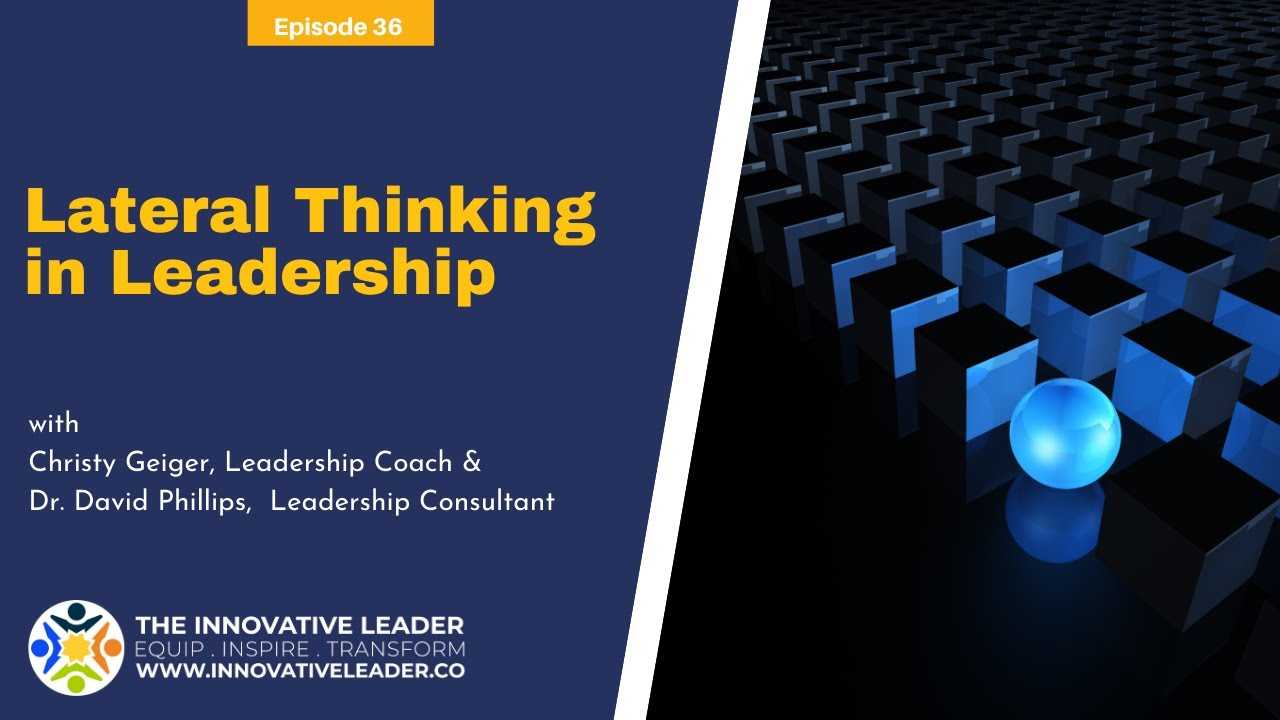
TILP 36: LATERAL THINKING IN LEADERSHIP
Christy and David talk about lateral thinking in a 4.0 organizational environment. They discuss how lateral thinking shows up in leadership.

Christy and David talk about lateral thinking in a 4.0 organizational environment. They discuss how lateral thinking shows up in leadership.
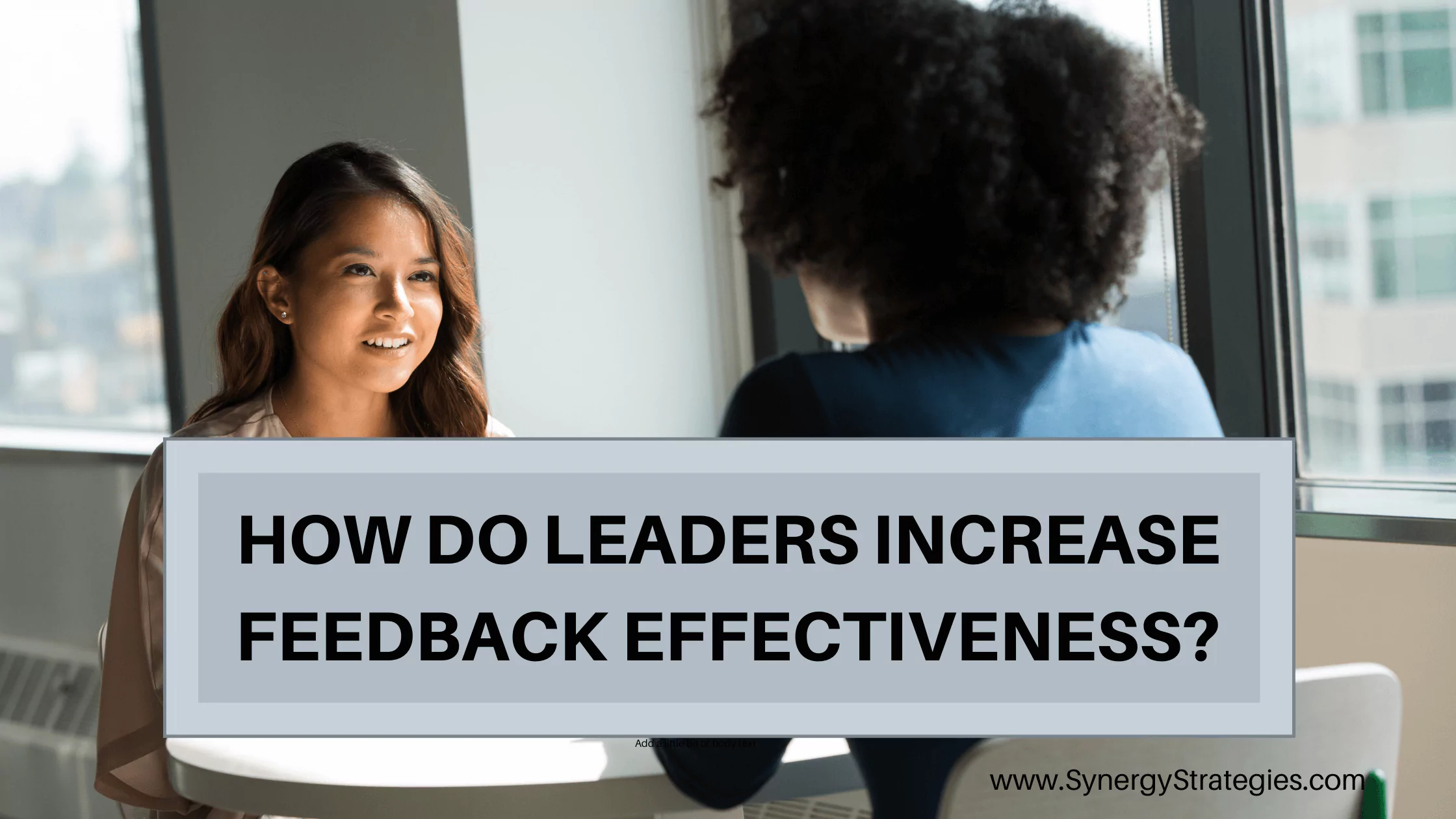
Different personalities, experiences, and histories can leave a leader feeling baffled as to how to effectively communicate, provide meaningful feedback, and inspire positive change in their followers. Neuroscience gives some great tips on feedback approaches that are effective and translate well to any individual’s brain.
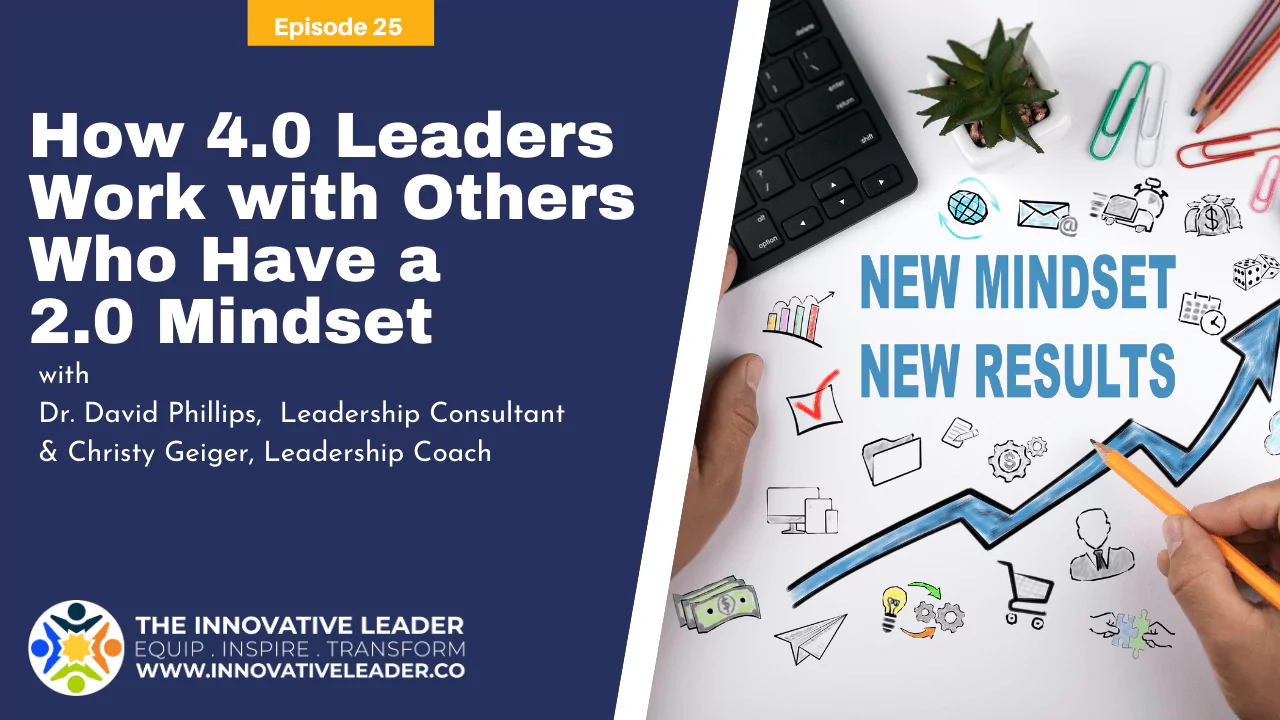
Building on the current era of Industry 4.0 and Web 4.0, we frequently talk about 4.0 Leaders. This is a leader who has the skills to navigate the demands of this 4.0 era. We are still evolving from many years of productivity and production where we refer to this era and time period of leadership as the 2.0 leader. The topic of leadership training and development was largely birthed during the time of the Second Industrial Revolution, which is why we say Leadership 2.0. The skills of the leaders at this time were about directing, orchestrating, and being in charge.
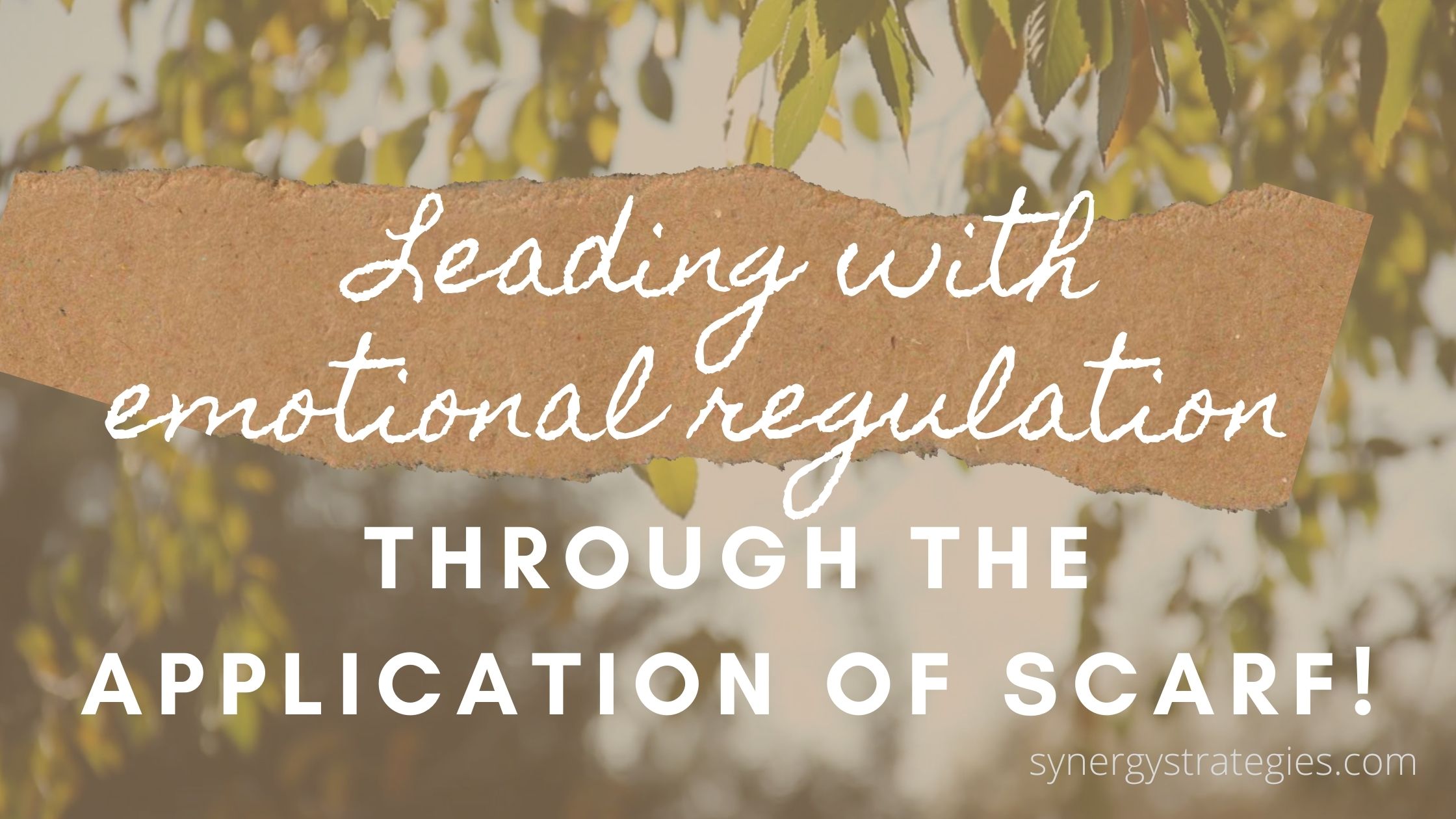
Understanding our emotions and how to respond to them, is a growing skill in leadership. Emotional management allows humans to lead better as they understand and support their followers.
Feedback can be challenging to give and receive…. use some tips from neuroscience to help make it more powerful and positive! 🙂 (I was honored to get to contribute this article)

THE INNOVATIVE LEADER PODCAST WITH DAVID PHILLIPS AND CHRISTY GEIGER (www.InnovativeLeader.co) What do we do when things go south? In this episode of the Innovative Leader, we talk about leadership awareness and how to navigation of the frontal lobe (sage) vs limbic system (lizard). Emotions are real, and play a very
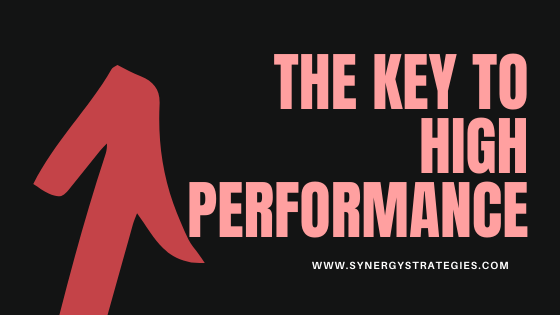
Sometimes in our 24/7, on the go society … we look and focus on ways we can increase our learning, habits, and performance. Downtime and mindfulness can seem like the opposite rhythm than the quick, efficient, and striving energy of achievement. Neuroscience helps us understand what is critical for our minds to be at their best, which directly impacts our mental, physical, emotional, and spiritual energy. This “downtime” of mindfulness is actually critical for building gray matter and the balanced sage perspective that offers us greater wisdom, guidance, and emotional intelligence.
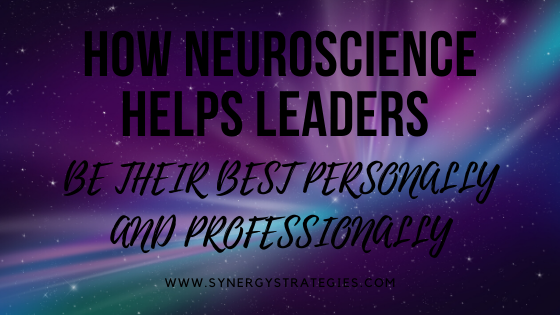
Leaders are in a constant state of learning and change. Leaders come to executive coaching to help gain insight for themselves to identify blind spots, to fill in leadership ditches, and to better achieve their goals. An accelerant to this is understanding how the brain works. Neuro awareness and skills can help a leader personally, and then as they hone their skills, they can practice, share, and mentor with their followers. Understanding how the brain works supports ourselves and our team to get the best results for human performance. Why? Because really, we are our brains.

There are three chemicals in the body that can help boost our mood and positive emotion when we are down or stressed. Studies show when these levels are low we can feel down. There are things you can do to naturally boost these “happy” levels daily. First is the hormone Oxytocin*, which increases when we have positive social interactions and connections. Second, are neurotransmitters; Dopamine and Serotonin*, which are produced by your body and used in your brain. Dopamine is connected to our senses, motivation and feeling good. Serotonin is a natural chemical that supports many functions in the body. It is sometimes referred to as the “happy chemical” because helps produce a healthy mental and emotional state and stimulates well-being and happiness.
When we are in situations where there are greater uncertainty and stress, it is common for worry and fear to increase. When we are not around other humans because our brains are actually wired for relationship and connection (introvert or not), we can feel sadness and loneliness. These feelings are all in the category of “social pain”.